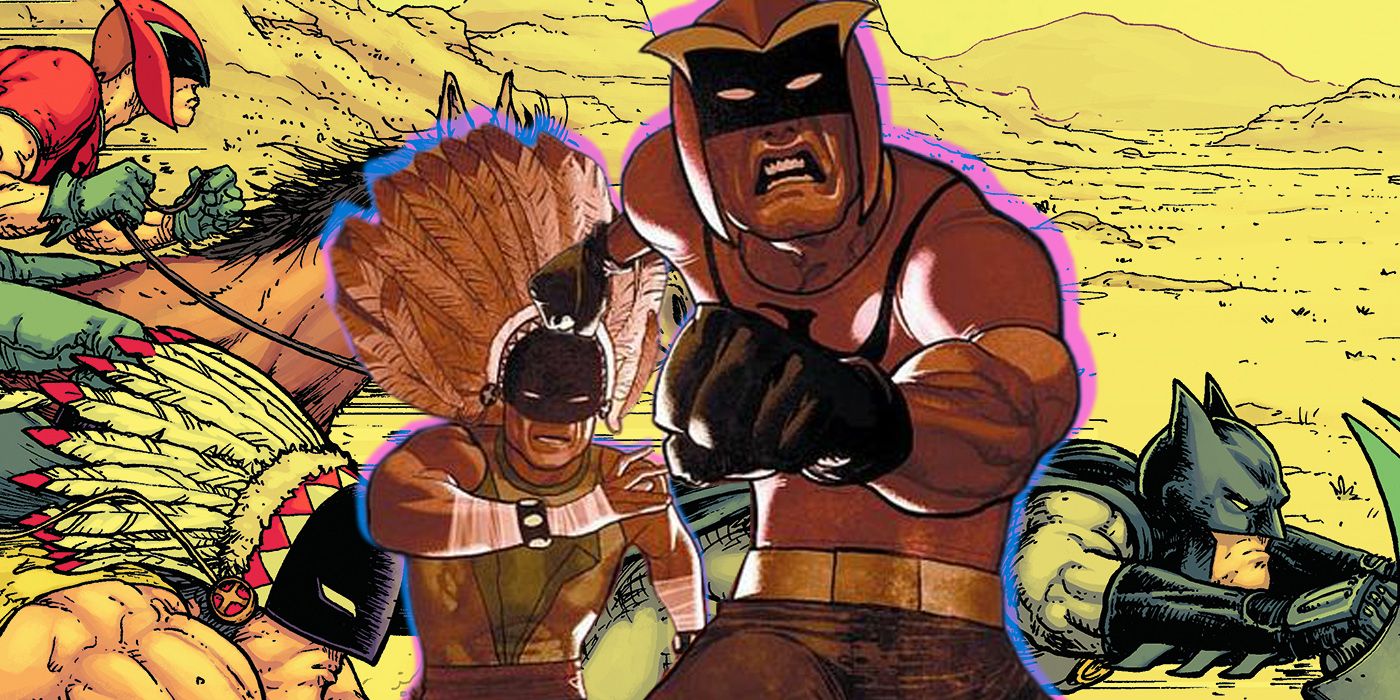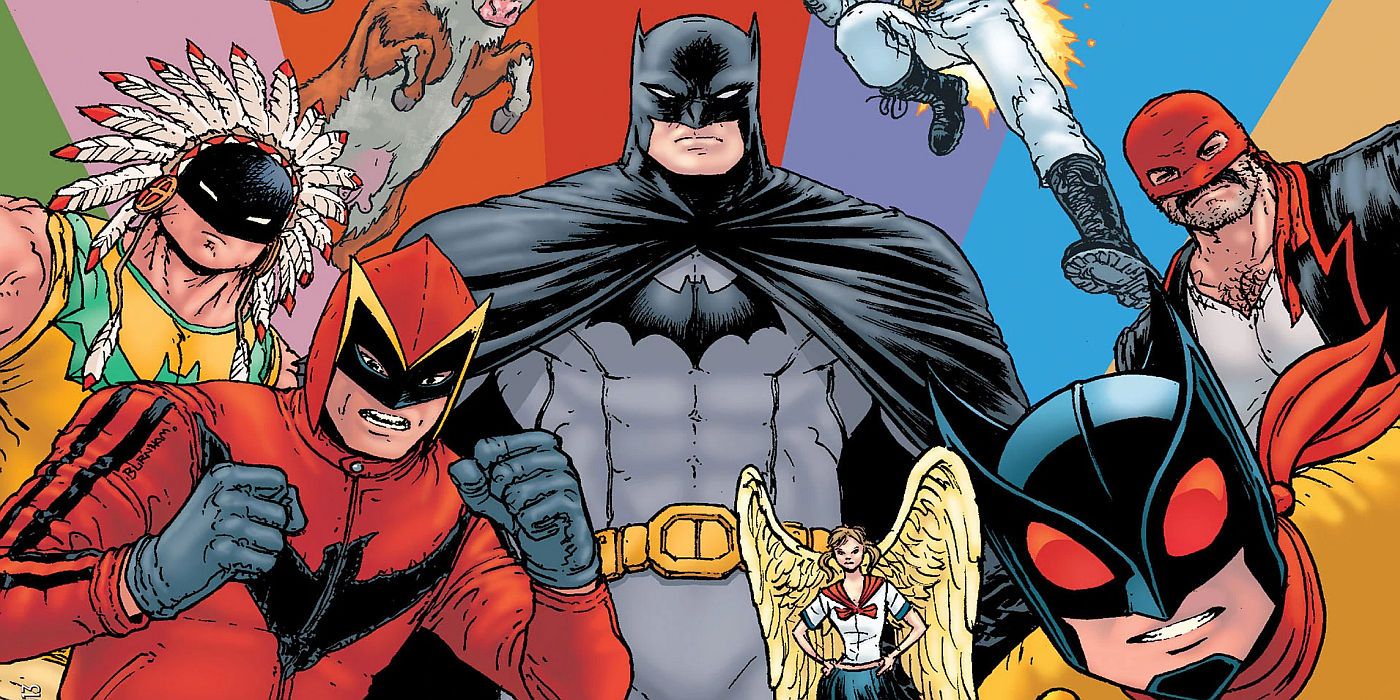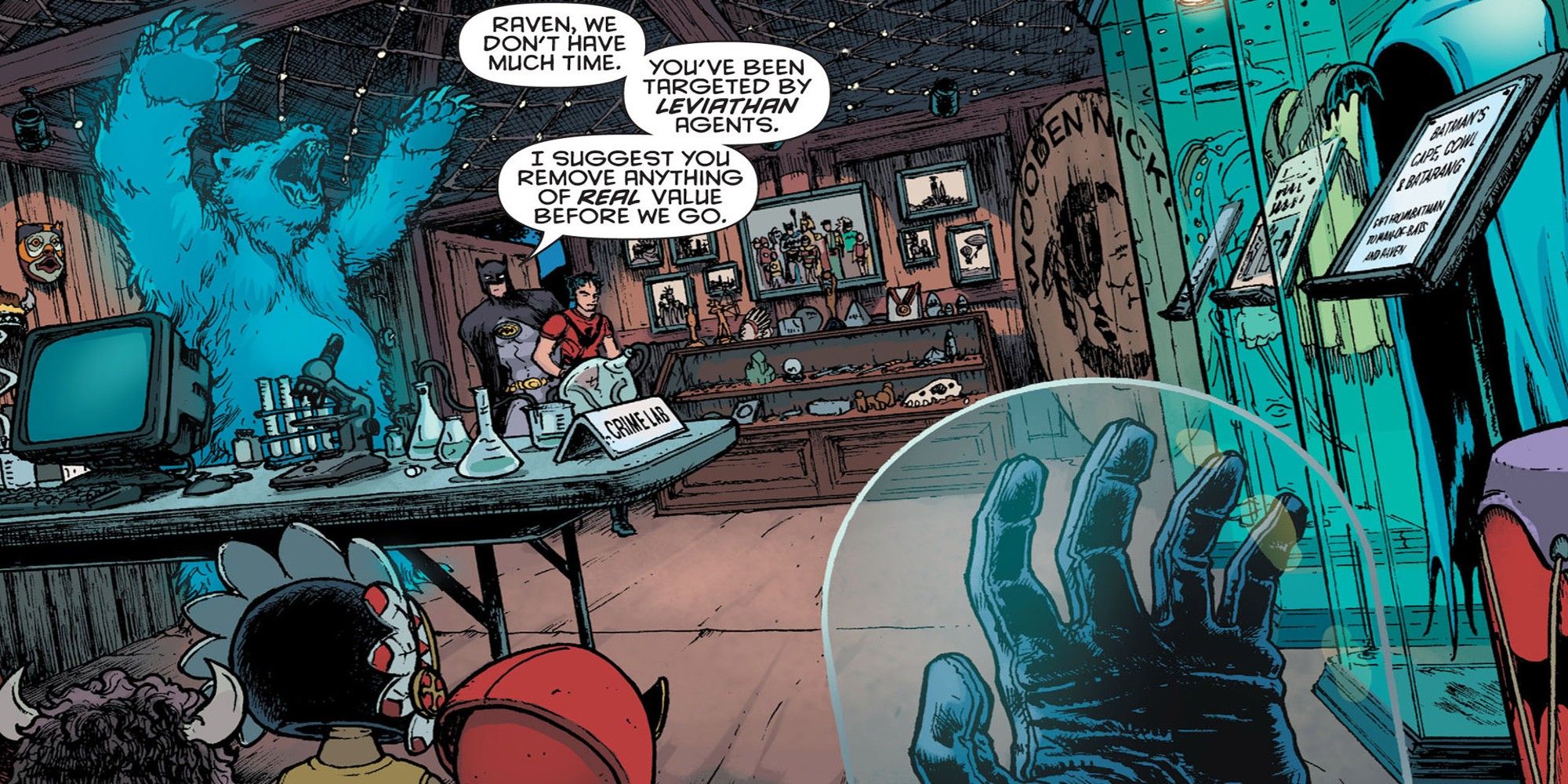Money being Batman's true superpower has gone from a throwaway joke in an episode of The Powerpuff Girls to a one-liner for Ben Affleck's Dark Knight in Joss Whedon's Justice League. The joke persists because there's more than a grain of truth to it. While Batman has long been portrayed as being so hyper-competent that he's functionally a meta-human, his wealth affords him all of those wonderful toys that help him fight crime.
Recent Batman comics, from mainstream DC Universe titles to the Batman: White Knight universe, have explored the idea of what a Bruce Wayne who isn't a billionaire looks like. Years before those stories were published, a single issue of Grant Morrison's Batman Incorporated gave fans a look at how Batman could operate without Wayne's resources or obsessions.
Batman Incorporated Modernized Obscure International Dark Knights
Morrison's version of the Batman Incorporated team was a modern version of the Batmen of All Nations, who were introduced in Detective Comics #215, (by Edmond Hamilton, Sheldon Moldoff, and Charles Paris). Renamed the International Club of Heroes, Morrison brought the group into the modern DC Universe in a story arc drawn by J.H. Williams III, "The Black Glove". The members of the Club of Heroes who survived "The Black Glove" went on to be founding members of the first incarnation of Batman Incorporated, alongside newer heroes like the Batman of Japan.
Instead of operating as a traditional super team, the members of Batman Incorporated worked regionally. This meant that the first volume of the series had more of a team-up formula, with the underrated Batman: The Brave and the Bold animated series serving as an inspiration for Morrison. That gave Morrison the perfect opportunity to explore shorter storylines at a point when six-issue arcs had become the industry standard. In the case of Batman Incorporated #7 (by Grant Morrison, Chris Burnham, Nathan Fairbairn, and Patrick Brosseau), all it took was a single issue to create one of their best Batman stories.
Man-of-Bats Is a Native American Version of Batman
Batman Incorporated #7 was a departure from Batman Incorporated. Instead of an international adventure, Batman heads to the Sioux Reservation in South Dakota. He's there to warn Man-of-Bats and his sidekick Raven Red that assassins from the crime syndicate Leviathan are targeting them. While Raven Red suits up to rescue his father, Batman can't hide how impressed he is with how the duo operates without his considerable resources. Despite working in what Raven Red describes as "America's third world," they've built a Batcave of their own. That makes Batman realize his mission can work without millions of dollars. He describes it as "Batman on a budget."
While it sounds like a backhanded compliment, it's also a testament to the good work Man-of-Bats and Raven Red do without generational wealth to back it up. Man-of-Bats and Red Raven's community-focused approach to vigilantism helps them survive Leviathan's assassination attempt. Having infiltrated the police and local gangs, Leviathan has the duo on the ropes. While Batman was working alongside Red Raven to rescue Man-of-Bats, it was the citizens of the reservation that save their lives, repaying them for the mutual aid they provided at the beginning of the issue. It shows that Batman can recruit allies that aren't traumatized child soldiers.
The self-reliance born from living on a reservation is as integral to Man-of-Bats and Red Raven's mission as Batman's money is to his. Batman Incorporated #7 is a memorable single-issue story largely because it offers a strikingly different version of Batman than what readers are used to, one who lives among the people he's protecting. Beyond that, it's just a great story, and one of the few from Morrison's Batman run that can be enjoyed as a self-contained single issue. Morrison shows that they have more than esoteric ideas up their sleeve, providing a new take on Batman with solid social commentary, while Burnham and Fairbairn provide excellent art. While all of Morrison's Batman run is worth digging into, Batman Incorporated #7 is worth reading on its own.



